After Ruth and her family were abducted by masked gunmen in southern Mexico, their commitment to advancing God’s kingdom only intensified.
Sitting in a sunlit room of her home in southern Mexico, Ruth smiled frequently while sharing stories from her youth, a time when she was unaware of how dangerous her family’s ministry work was in the region. Many of her most cherished childhood memories are of journeys with her father deep into the mountains and jungles to preach the gospel. Those formative years later launched her into front-line ministry as an adult.
When Ruth was as young as eight years old, she and her father took multi-day trips to villages that practised animism or Christo-paganism, a blend of ancient pagan practices and Roman Catholicism that is common in parts of Mexico and other areas of the world. “I had to behave so my mum would give me permission to go with my dad,” said Ruth, now 47. “My mum knew it was dangerous.”
While her father met and prayed with adults, Ruth sat with the children and taught them what she had learned in Sunday school. She often brought the children handmade gifts and taught them from Sunday school materials she prepared herself. During these memorable trips with her father, Ruth saw ill people healed and many place their faith in Jesus Christ. “I saw that people would change,” she said with a smile, “and I loved that.” She said her father always took great joy in giving Bibles to new believers. He purchased them himself, using money he had earned repairing televisions and radios in his spare time. He often travelled for two days each way to purchase Bibles in the city. On one occasion, Ruth said, they made the round trip to purchase just two Bibles for a village where no one owned one.
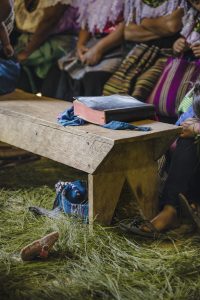
Ruth still remembers being deeply moved at seeing how hard her father worked to provide believers with their own copy of God’s Word. “I would say, ‘Dad, one day we are going to have lots of Bibles; I am going to work hard’,” she recalled. Ruth said her father assured her that the Bibles would change people’s lives.
Growing Up in Ministry
Ruth worked alongside her father throughout her childhood as he oversaw dozens of churches in southern Mexico. Soon, she became a ministry leader herself, even as a child. At age 10, with the blessing of her church’s deacons, she was allowed to lead a Sunday school class on a trial basis. When the class grew from 10 children to 70 children in just three months, she became the Sunday school director for several churches, a position she held for the next 10 years.
As she matured and spent more time ministering to adult believers with her father, Ruth began to hear personal accounts of persecution. Violence became more common in the mid-1990s, after the Zapatista Army of National Liberation, or EZLN, engaged the Mexican Army and police in small-scale fighting. The EZLN, a guerrilla group at least partly influenced by Marxist ideology, sometimes persecuted Christians because the gospel conflicted with their political agenda. “After the [Zapatista uprising] started, everybody was told to eliminate every Christian in the area,” said Ruth, who was about 20 years old at the time. She remembers several stories of violence from that period, including the time a Christian’s arm was cut off with a machete because he was preaching, and another time when a believer’s house was burned. She said she recalls multiple instances of guerrillas burning piles of Bibles.
Then, as now, Christians who left their family’s religion to follow Christ often paid a steep price for their decision. Today, Christian converts are still frequently rejected by their families, shunned by their communities or even attacked. In 2004, Ruth learned that Christians suffer for the gospel not only in her region but around the world. A woman visiting Ruth in Mexico gave her a copy of the Voice of the Martyrs magazine. Although the magazine was in English, it helped Ruth understand VOM’s mission of serving persecuted Christians. As she flipped through the magazine’s pages, she saw a picture of men carrying boxes of Bibles to be distributed in areas where Bibles weren’t available. She immediately sent an email to the address on the back of the magazine, hoping to connect with someone at VOM.
Sometime later, a VOM worker visited Ruth in Mexico and helped equip her to continue her work of advancing God’s kingdom. VOM later sent Ruth 300 Bibles to distribute to pastors who worked in areas where Christians were facing significant persecution. Ruth took her father with her to pick up the Bibles at the post office. Grateful for the unexpected gift, they prayed and praised God for the blessing of His Word. “I was crying,” Ruth said. “That was an answer to prayer, because for us it was impossible to buy [that many Bibles].”
A New Ministry Partner
In 2009, Ruth met a man named Aurelio who had recently lost his wife and was raising their children on his own. Like Ruth, he had a passion for evangelism. Ruth and Aurelio were married in 2013, and the couple soon began planting churches together. As they and other church planters entered new villages in southern Mexico, they often faced opposition. Mexico’s constitution guarantees freedom of religion, but it also allows indigenous communities a degree of self-governance to practise their own “uses and customs”. Under the authority of this law, some village leaders allowed only their village’s traditional religion.
Local priests sometimes urged their congregations to persecute anyone trying to establish another church. The church planters were then ostracised by the community: their electricity and water were cut off, their children weren’t allowed to attend local schools, and their families were denied medical care at the village clinic. “There is not one church that doesn’t go through that,” Aurelio said. “Anywhere you go, you will face opposition.” Aurelio also received threatening calls. He said he told the callers, “You’ll never feel good if you kill us because we don’t do anything wrong. We are pastors. We help people.”
In early 2015, Ruth and Aurelio started working with a large group of homeless people who had been expelled from their small town for refusing to cooperate with the Zapatistas. At first Ruth and Aurelio focused on ministering to young women, who were at risk of being sexually abused. But their work soon expanded to providing meals, Bibles and job training to as many people as possible.
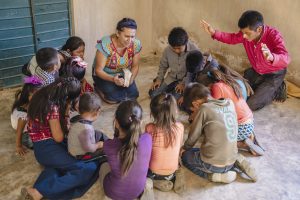
Ruth and Aurelio were able to help the people buy a small piece of land to farm for their own benefit, and they also built a small church building there. The people now use their church to feed others in need every Saturday. “People come from every community,” Aurelio said. “They listen to the gospel and they can eat food.” Following the success of their work in the city, the couple visited four other communities where church plants were not allowed. In these areas, they began programmes to feed the children and improve their literacy by reading the Bible. “Many children came, and the feeding programme started to grow,” Ruth said. “The children started to bring their parents.” As the programmes expanded to help both children and adults, Ruth and Aurelio renamed the programmes ‘Outreach Bases’. But as the bases grew, they attracted unwanted attention.
Held Captive
One evening in June 2017, Ruth and Aurelio packed their truck with 500 Bibles, which they and several youths, including their 16-year-old son, Gabriel, and 12-year-old daughter, Maria, were going to distribute at one of the Outreach Bases. After the distribution, Gabriel rode home on a bus with some other teenagers, but Maria was required to stay with her parents. Ruth said they drove home filled with joy, knowing that hundreds of people now had their own Bible.
At about 5pm, just as the three of them were nearly home, a truck pulled in front of them and came to a sudden stop. Then a car pulled up beside them so they couldn’t go around the stopped truck. Ruth and Aurelio realised they were in trouble. Six masked men climbed out of the vehicles, with automatic rifles, and one of them opened Aurelio’s door. “We know who you are,” the man said. “You are on our list. We know what you do, and today you are going to die.” Four of the armed men then dragged Aurelio out of the truck and beat him with the stocks of their rifles before leaving him in the street, bleeding from a gash on his head. “They hit me in the face so many times that I couldn’t feel anything,” Aurelio said. Another gunman got into the couple’s truck and drove away with Ruth and Maria inside. As the driver slowed to go over a speed hump moments later, Ruth opened the door and jumped out, pulling Maria after her.
They started running, but the gunman and his friends, who were following in their own vehicles, soon caught up with them. The men tied Ruth and Maria’s hands behind their backs and threw them into their own truck. When Ruth sat up in the back seat, she was surprised to see Aurelio, slumped over next to her. At first, she thought he was dead, but he soon regained consciousness. Aurelio’s hands were covered with blood, which he wiped on the car window in the hope of alerting a passerby. “In that moment, I thought, ‘I have to be strong for Maria’,” Ruth recalled. “I said, ‘Lord, I need You. Give me strength. Give me the strength that can only come from You’.”
Ruth said a sense of peace came over her as the vehicles stopped and the gunmen dragged the family out of the truck. With the sun just starting to set, three of the men pushed them down a hill. Ruth said she thought that was the end for her and her family. At the bottom of the hill, an area covered with rubbish and broken glass, the gunmen forced the family to walk barefoot into the woods, where they continued to beat Aurelio. After a while, they doused Ruth, Aurelio and Maria with petrol. “Where did you take the load that you had?” one of the men demanded. “You are always taking boxes.” “They were Bibles,” Ruth replied, “the Word of God. What places have you visited?” another man asked. “We share Bibles in many places,” Ruth told him. “This is our work — to distribute Bibles. That’s all we do. We don’t sell them. We don’t make money. We take them so people can read them.” “You’ve got to stop doing this!” one of the men yelled. “We have to do this,” Ruth replied. The men started beating Aurelio again, until he finally lay still on the ground. Again, Ruth feared that she and her family were about to be killed. “Lord, is this Your will, that this is as far as we go?” she prayed silently. “Would You give us another opportunity? There are so many things that I haven’t finished.”
As she thought of her own death, Ruth said the image that came to her mind was the boxes of Bibles still stacked in their warehouse. They had just received a new shipment of Bibles and had a list of those who would receive them. Ruth continued to pray, asking God to allow her and her family to be freed so they could get the Bibles to the people who needed them. After nightfall, Ruth couldn’t tell if Aurelio was dead or alive. But as she grieved over all that had happened that night, she again felt God’s presence. “I heard Him say, ‘You won’t die; you will live and you will tell of My glory’,” Ruth said. “I heard it like someone had come up and said it in my ear. In that moment, I felt an inexplicable peace. I didn’t feel alone any more. I felt something. A strength came over me.”
Suddenly, one of the captors put a gun to Ruth’s head. He pulled the trigger, but nothing happened. His gun had jammed. Frustrated, he tried to light a match to set the family’s petrol-soaked clothes on fire. The matches wouldn’t light. “What is going on?” the man yelled. “We have to finish the job!” The gunmen then walked away from the family to talk. “Why can’t we kill them?” Ruth overheard one of the men ask. “The boss is going to be really mad at us if we don’t kill them,” another man said. “If we don’t finish this job, he is going to kill us.” At about 1am, the men decided to leave. They told Ruth and her family to keep their eyes closed until they could no longer hear their truck driving away. They warned them not to tell anyone what had happened. “We know where you live,” one gunman said. “We know who you are. We know everything, and we are going to be close to watch you if you tell the police.”
Having stolen Aurelio and Ruth’s phones as well as their truck, the attackers sped away. Ruth untied her hands and, after Aurelio regained consciousness, helped her husband and Maria walk back up the hill. After making it to the road, they eventually received help.
A Time of Healing
At the hospital, Aurelio received stitches for his head wound and Ruth was treated for cuts on her feet caused by shards of embedded glass. The entire family also received help to deal with the trauma they experienced that night.
Ruth and Aurelio don’t know who abducted them, but they suspect the attackers were either guerrillas or members of a drug cartel; both have a history of persecuting Christians. In some parts of Mexico, these groups try to stop the spread of the gospel because those who put their faith in Christ are more difficult to recruit for drug trafficking and prostitution. “There are many questions that we don’t have answers to,” Aurelio said. “We know that God saved us with His mercy, and it is worth taking these risks for the gospel.” Aurelio said that he, Ruth and some others who work with them are among a dwindling number of Christians still working in areas where armed groups are active. “Many pastors stopped visiting these places,” he said. “If we don’t go there … the village goes to the Zapatistas.”
Following their ordeal with the gunmen, the family travelled to another part of Mexico, where they were able to rest and spend time together. A few months later, VOM invited Ruth and Aurelio to an annual pastors’ conference in Colombia for “There are many questions that we don’t have answers to. We know that God saved us with His mercy, and it is worth taking these risks for the gospel.”
couples who minister in Colombia’s ‘red zones’, areas controlled by guerrilla or paramilitary groups. The conference provides a respite from the tension and danger of their work as well as fellowship with others who have experienced violence or other persecution for their Christian witness.
Ruth said the conference helped her and Aurelio recover from the trauma of their abduction. “We met with people who had been through those kinds of incidents,” she said. “They encouraged us, but we also encouraged them.”
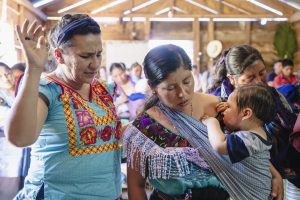
VOM offered to help Ruth and Aurelio relocate for their family’s safety, but Ruth said she couldn’t forget the message she sensed God giving her during the attack: “You won’t die. You will live and you will tell of My glory.” After praying about it, they decided to stay in southern Mexico. “The Lord put me there,” Ruth said. “I wasn’t going to run away. This was a battle we had to go through. God was going to do it God’s way. We decided God doesn’t want us to leave that place.” Aurelio shared his wife’s commitment. “We are going to preach double now,” he told Ruth at the time.
Continuing the Mission
Since their abduction by the gunmen eight years ago, Ruth and Aurelio’s ministry has grown dramatically. Through a network of volunteer workers, they have planted more than 500 churches and established nearly 50 Outreach Bases that reach three indigenous people groups. Through the Outreach Bases, volunteers host Bible studies, provide children’s activities and distribute food. Though the bases serve both children and adults, children continue to be a primary focus. Each Saturday, more than 5,000 youth hear the gospel and learn from the Bible.
“If a child comes to the Outreach Base, they already have authorisation from their parents,” Ruth said. “There is a 90% chance that the whole family is going to accept Christ. Those children have a place where they can say ‘My mum is sick’ or ‘Something happened to me’, and they are prayed for, and God does miracles and they can see it.” Workers also distribute VOM’s Christmas Care Packs at the Outreach Bases. The packs contain a children’s Bible, a water bottle, school supplies and other necessities. “The parents get excited, but the children, they get [super excited],” Ruth said. “It is a huge, great gift.”
In recent years, Ruth and Aurelio have built seven temporary shelters on their land for those displaced from their homes or banned from their villages because of their Christian faith. The believers who stay in the shelters receive Bible instruction and job-skills training. Today, Aurelio’s only lasting symptom of the head injury he suffered in the attack is an occasional, brief loss of vision in one eye. Otherwise, he has completely recovered.
The family continues to deal with the trauma on an emotional level, however. Ruth is still filled with anxiety when a vehicle pulls in front of their truck. She and Aurelio have also altered some of their work habits as a result of the attack, such as varying the routes and times of their travel to avoid establishing noticeable patterns. In addition, they have hired other Christians to lead different aspects of the ministry. “We realised that if our lives were ending that day, nobody would know where the Bibles needed to be distributed,” Ruth said. “If for some reason we will not be here, people will know how to continue the ministry.”
Reflecting on their ongoing work in southern Mexico, Ruth asked that people pray for their growth in faith. “Pray that we can get into more places,” she said. “The Outreach Bases are working, and we need more. We need God to be able to go into these places. He will give us the tools we need to actually work in these places.” God has already granted their ministry great successes, but Ruth and Aurelio know they could be attacked again. “I know they are looking for us,” Ruth said. “We are in their crosshairs. We haven’t stopped. We will continue. Whatever God asks us to do, we will do.”
In addition to the Outreach Bases and shelters for displaced Christians, Bible distribution is another aspect of their ministry that has grown dramatically. Ruth and Aurelio are now receiving much larger shipments of Bibles, which must be kept at a strategically located warehouse. The Bibles are printed in five languages, including indigenous dialects. Through their network of churches, Ruth collects the names of believers who don’t own a Bible and a ministry team is in charge of distributing them. In addition, Ruth continues to work with her father, who still pastors multiple churches, to ensure that every believer has his or her own copy of God’s Word.
“God is so good,” Ruth said with a smile. “He called me and is bringing me all the resources to do ministry. It has often been a hard process, but God always strengthens me. God is the one who is doing this. Children’s lives have been transformed, and by that, the parents’ lives are transformed — all for the glory of Jesus.”
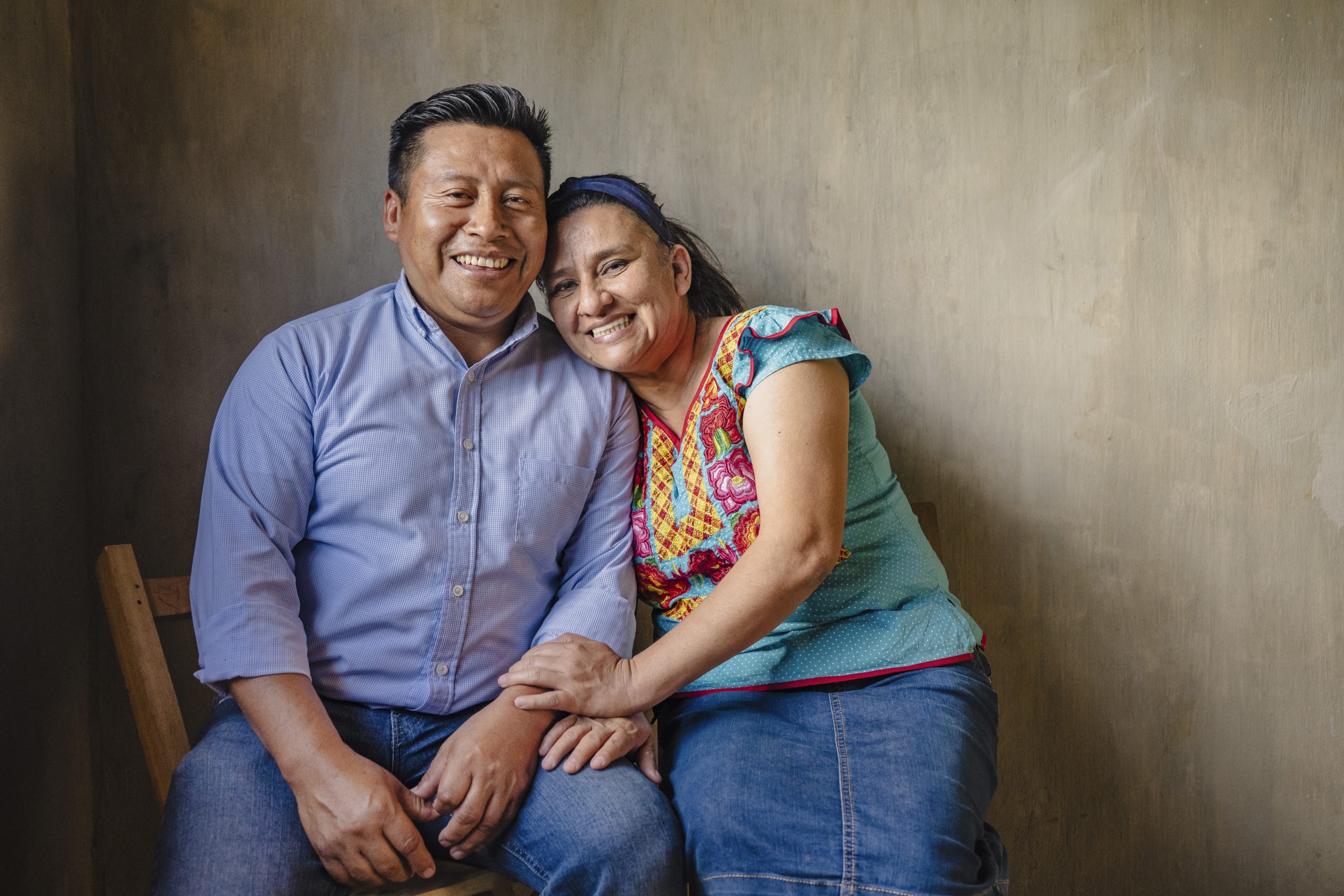
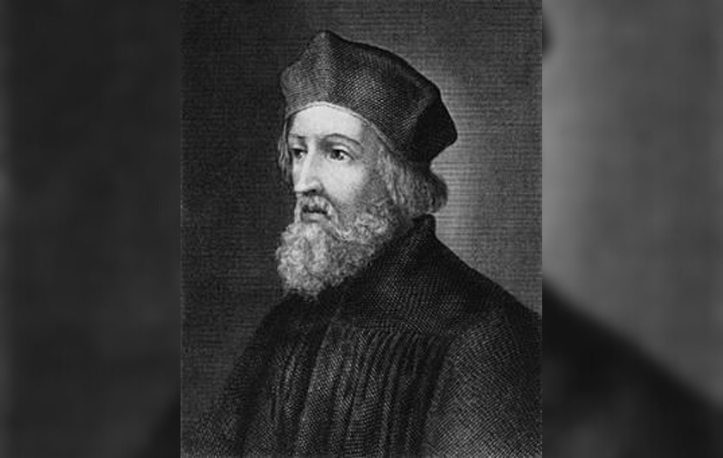
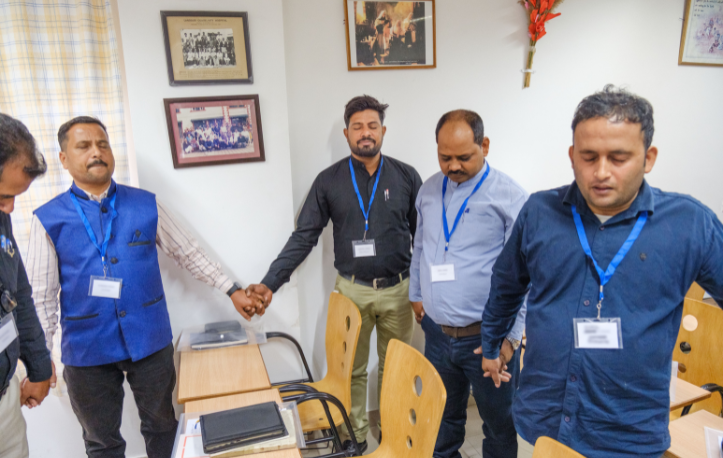
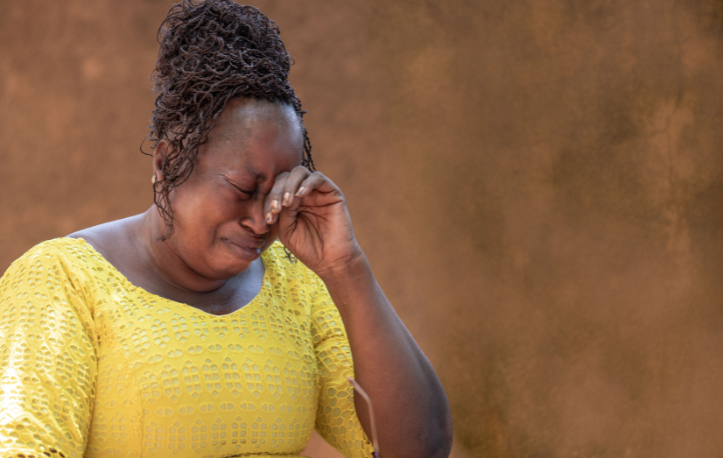
Submit a Prayer